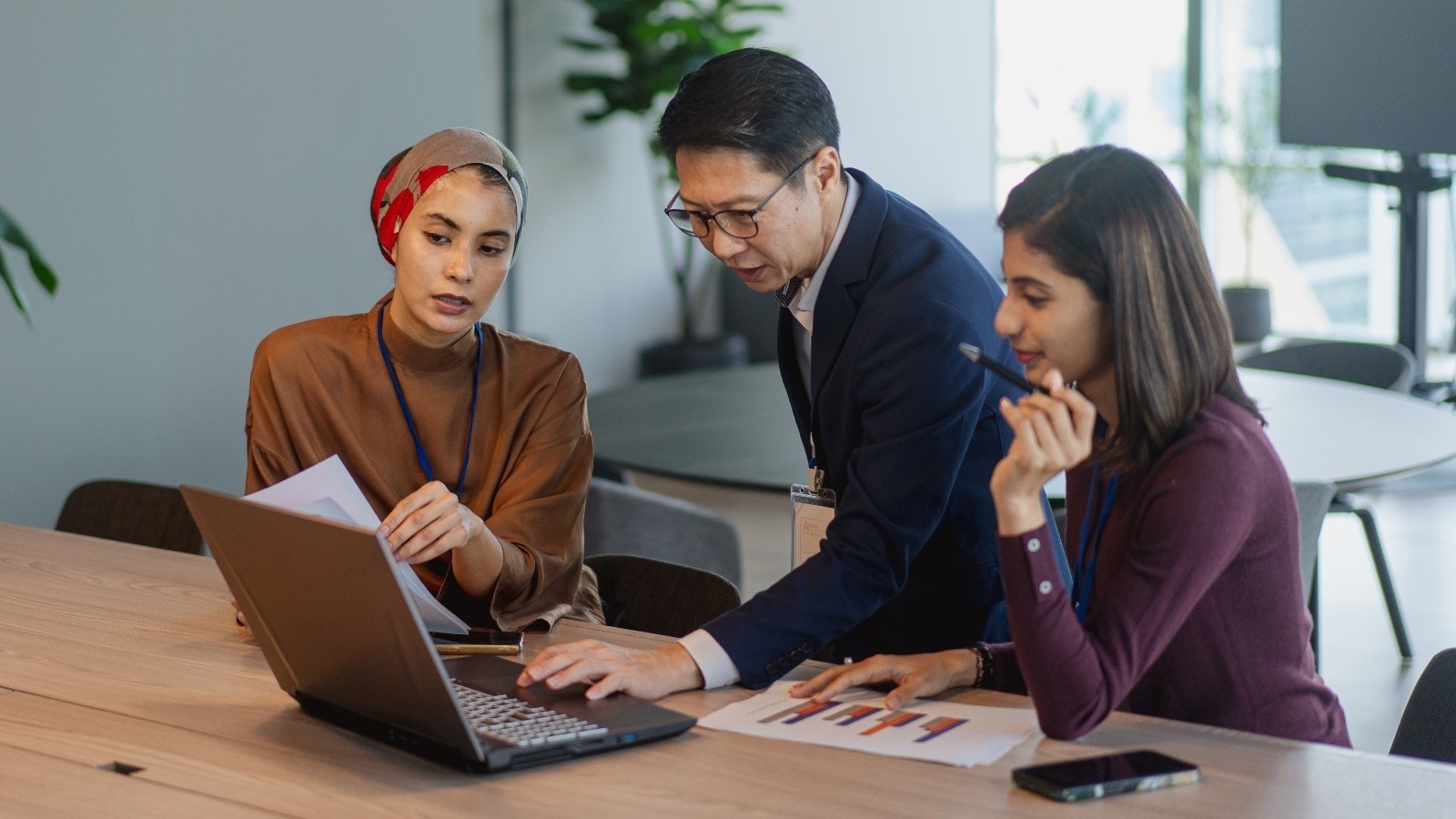Trust is a form of relationship which is encountered on a day-to-day basis in the workplace. It is one’s willingness to be vulnerable to the actions of a trustee based on the expectation that the trustee will perform a particular action.
Building trust is essential for successful transformations in leadership and the workforce. From fostering a culture of openness and transparency to managing resistance and uncertainty, companies today are always seeking ways to foster trust to benefit themselves in the long-run.
Against this backdrop, PwC Malaysia and the Asia School of Business hosted an exclusive event on 18 July to launch our latest thought leadership publication, ‘Leading the leap: Trust-driven strategies to shape reinvention.’ An approximate 150 attendees were present. Through this event, we brought together a panel of speakers consisting of industry leaders and field experts from notable companies and institutions to discuss navigating trust at the interchange of transformation at the workplace.
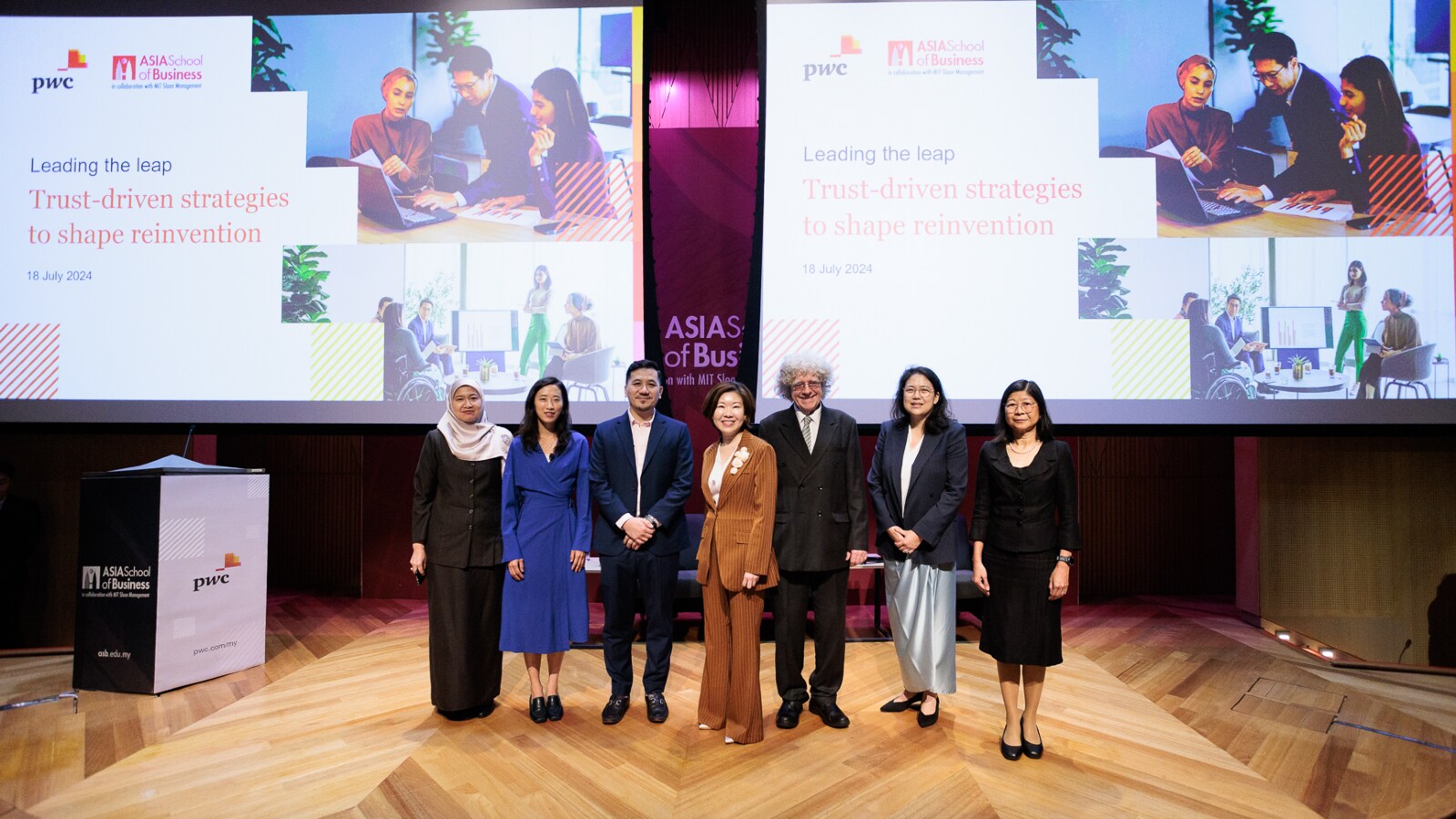
(Speaker line-up, from left: Nurul A’in Abdul Latif, Executive Chair at PwC Malaysia; Prof. Dr. Yi-Ren Wang, Associate Professor I of Organisational Behaviour at the Asia School of Business; Arien Zackary Ritzal, Chief Talent Officer at Gentari; Lai Pei-Si, Chief Executive Officer at GXBank; Prof. Michael Frese, Professor of Management at the Asia School of Business; Abigail Tay, Deputy Dean and Faculty Chair at the Asia School of Business; Pauline Ho, Building Trust Programme Sponsor and Assurance Partner at PwC Malaysia)
‘Our employees today look up to leaders they can trust, and we know that a high-trust environment within an organisation will foster a state of ownership. It will foster loyalty, dedication to collective success and this in turn will result in better decision-making, innovation and, ultimately, a more sustainable business.’
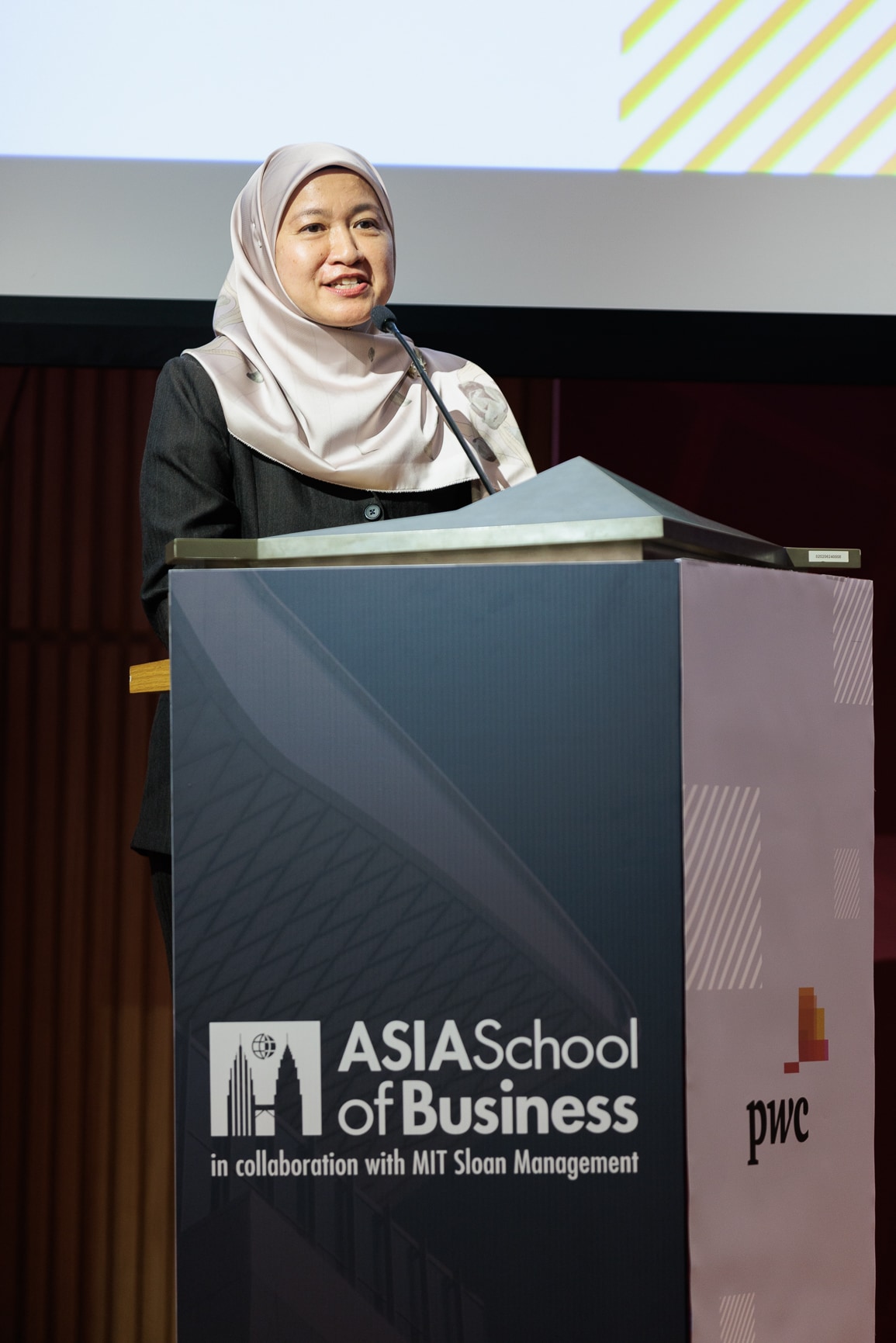
(Nurul A'in Abdul Latif delivering her opening remarks)
Nurul also remarked that while companies are moving towards more technologically advanced systems and platforms with higher emphasis on sustainability, it is essential to have the necessary business resources or the people who could trust and accept these transformations. Otherwise, the investments in technology and sustainability practices by companies will not become functional.
Speaker sessions
The event featured Prof. Dr. Yi-Ren Wang from the Asia School of Business, who presented key findings from the survey. She highlighted how leaders could build trust in the workplace by examining five indicators employees use to judge trustworthiness. She also shared nuanced differences in how different demographics within the workforce perceived these leadership indicators.
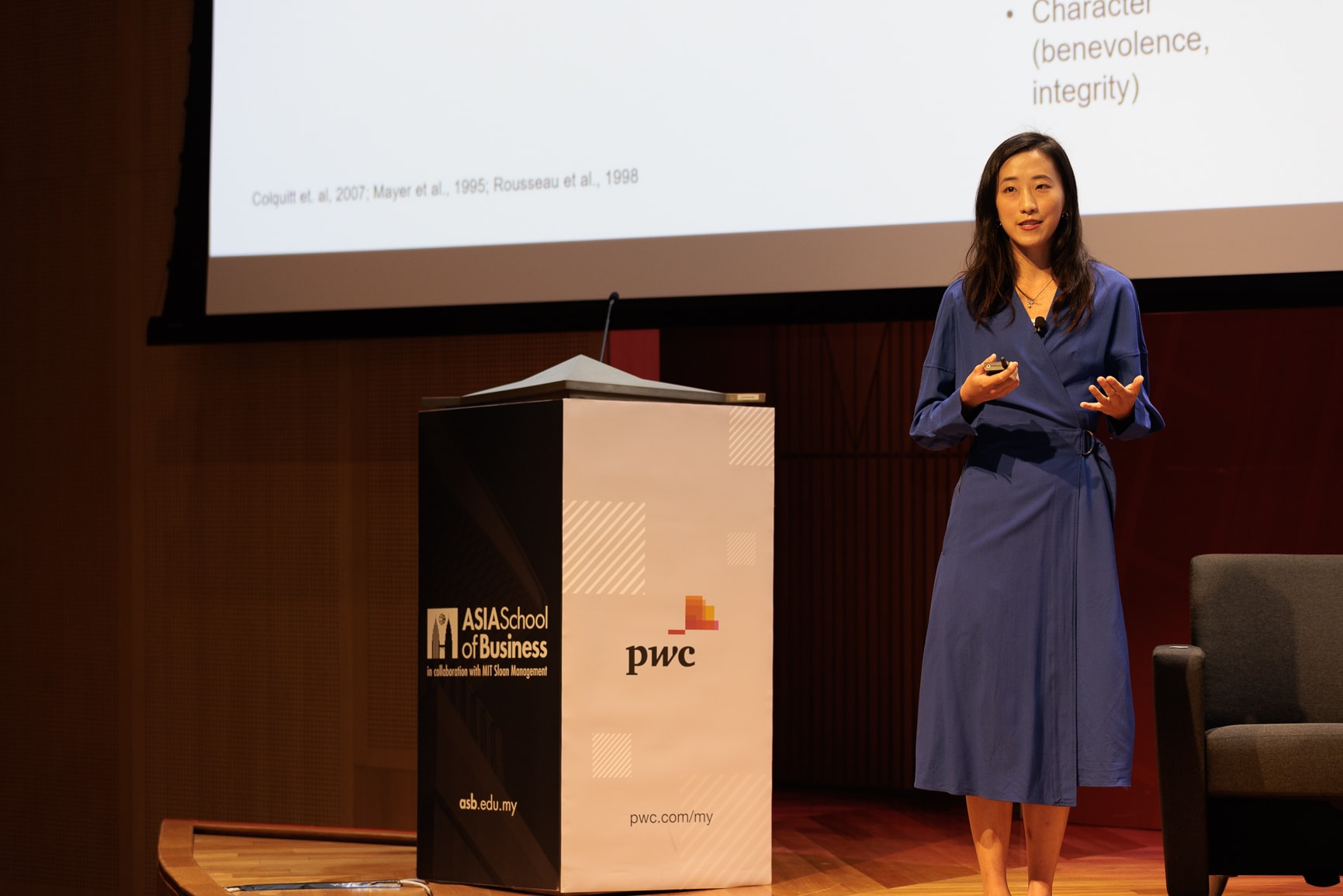
(Prof. Dr. Yi-Ren Wang from the Asia School of Business presenting key findings from the survey)
Then, a panel discussion moderated by Pauline Ho, Building Trust Programme Sponsor and Assurance Partner at PwC Malaysia, followed. The discussion brought together three speakers from different backgrounds to share their own insights and experiences in building trust in the workplace. The speakers were:
- Lai Pei-Si, Chief Executive Officer at GXBank
- Prof. Michael Frese, Professor of Management at the Asia School of Business
- Arien Zackary Ritzal, Chief Talent Officer at Gentari
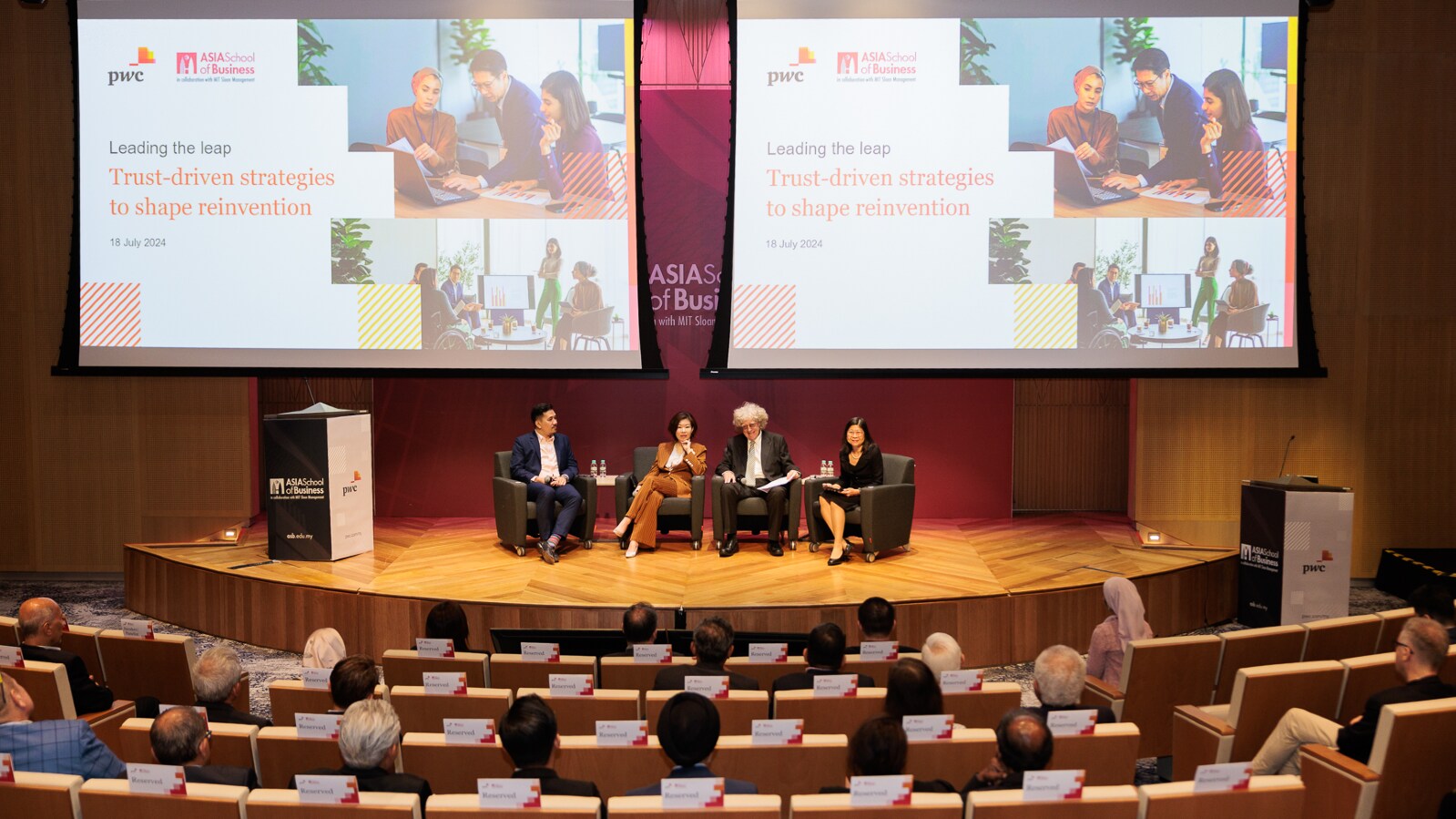
(Panel discussion delving into navigating trust at the interchange of transformation at the workplace featuring, from left, Arien Zackary Ritzal, Lai Pei-Si, Prof. Michael Frese and moderator, Pauline Ho)
Key takeaways from the panel discussion
1
Authentic leadership
As communication technologies blur the line between life and work, leaders must role model desired behaviours within and outside of work to drive cultural alignment within the organisation.2
Iterative innovation
Innovation is not a linear, one-off process. Repeatedly ideating and solutioning, while taking into consideration feedback from a diverse group of stakeholders, will yield a superior outcome.3
Embrace vulnerability
The panel unanimously agrees that a compelling purpose drives transformation efforts. However, leaders must lead with humility, and crowdsource solutions to questions they don’t have an answer for.When asked if the trustworthiness of a person’s character is in the nature or nurture, Prof. Michael emphasised the importance of viewing ‘nature’ and ‘nurture’ as a continuum, rather than mutually exclusive factors in fostering effective leadership.
‘Nature’ or ‘nurture’ is never an alternative. It is always a scale from all nature to all nurture–and there is never an all nature or all nurture. It is always in between. All of that, we should never dichotomise.
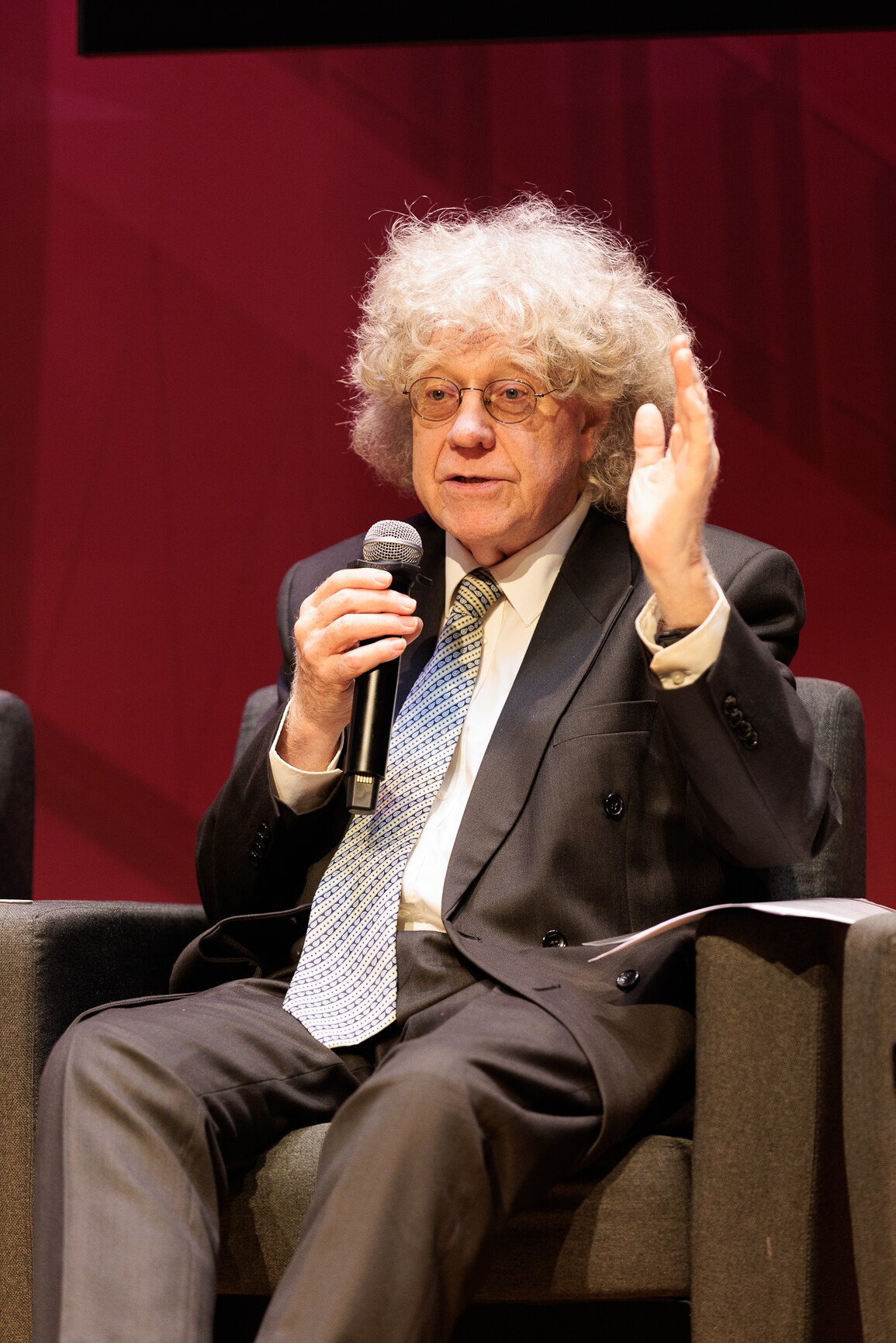
(Prof. Michael sharing his view on fostering effective leadership)
'We believe in small incremental solutions. We started to think about what we could do in terms of our physical space. The first thing we did was to destroy all the rooms for the c-suite. By doing that, we created a more open space for people to mingle around and feel as one team,' shared Arien.
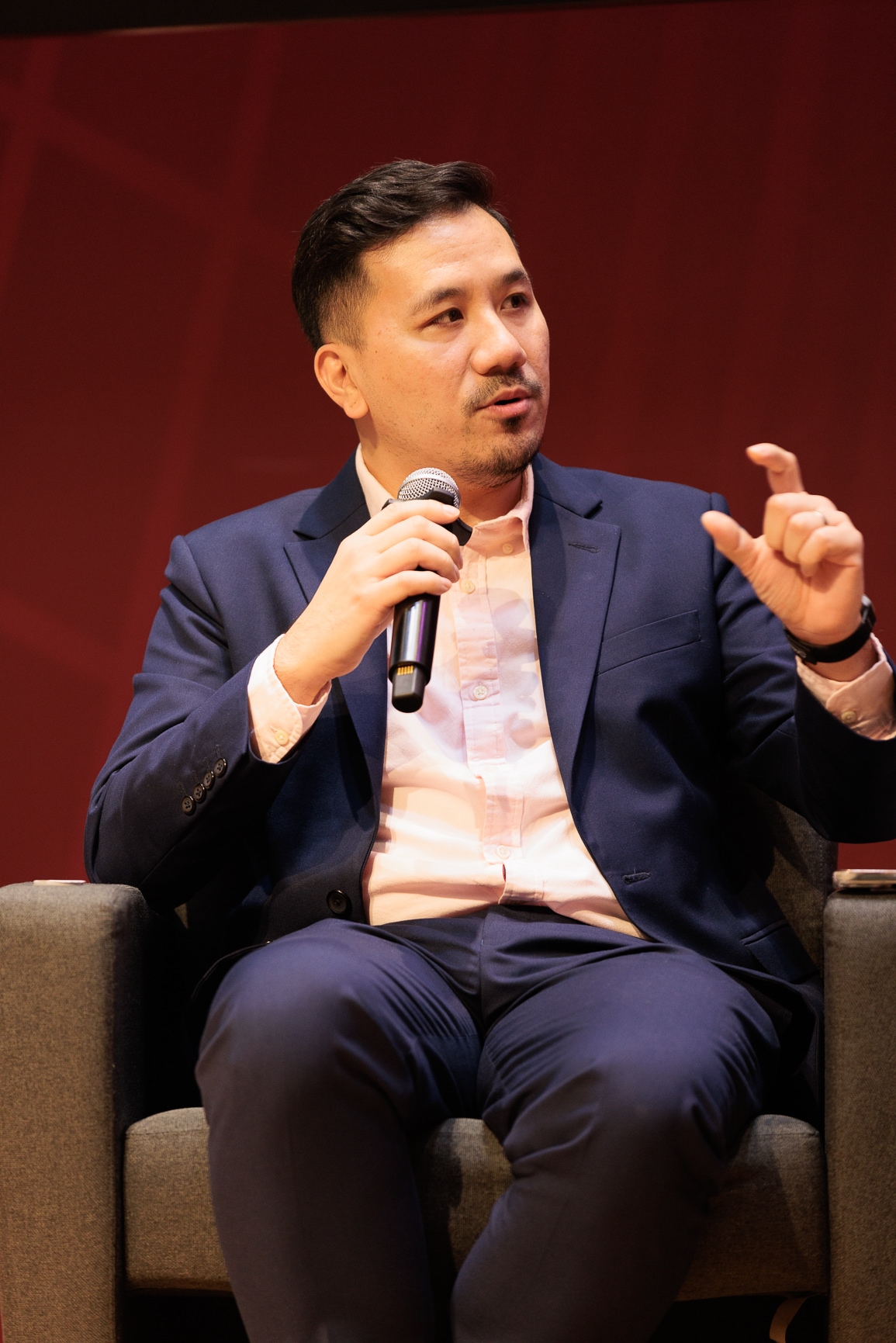
(Arien emphasising the benefits of having open working spaces)
He emphasised that having open working spaces that bring together all levels of seniority in the workplace could create an environment that encourages communication and team building.
‘The biggest challenge for us is finding the right set of people. You won’t always find the right people, but being able to work together despite and in spite of the different backgrounds is what we strive for. We want innovation and creativity from our teams. Therefore, focusing on a single-minded mission and purpose bind us together to deliver what is needed for the better,’ said Pei-Si.
She highlighted that a diverse team with varied expertise will spark better ideas and drive the company’s vision forward.
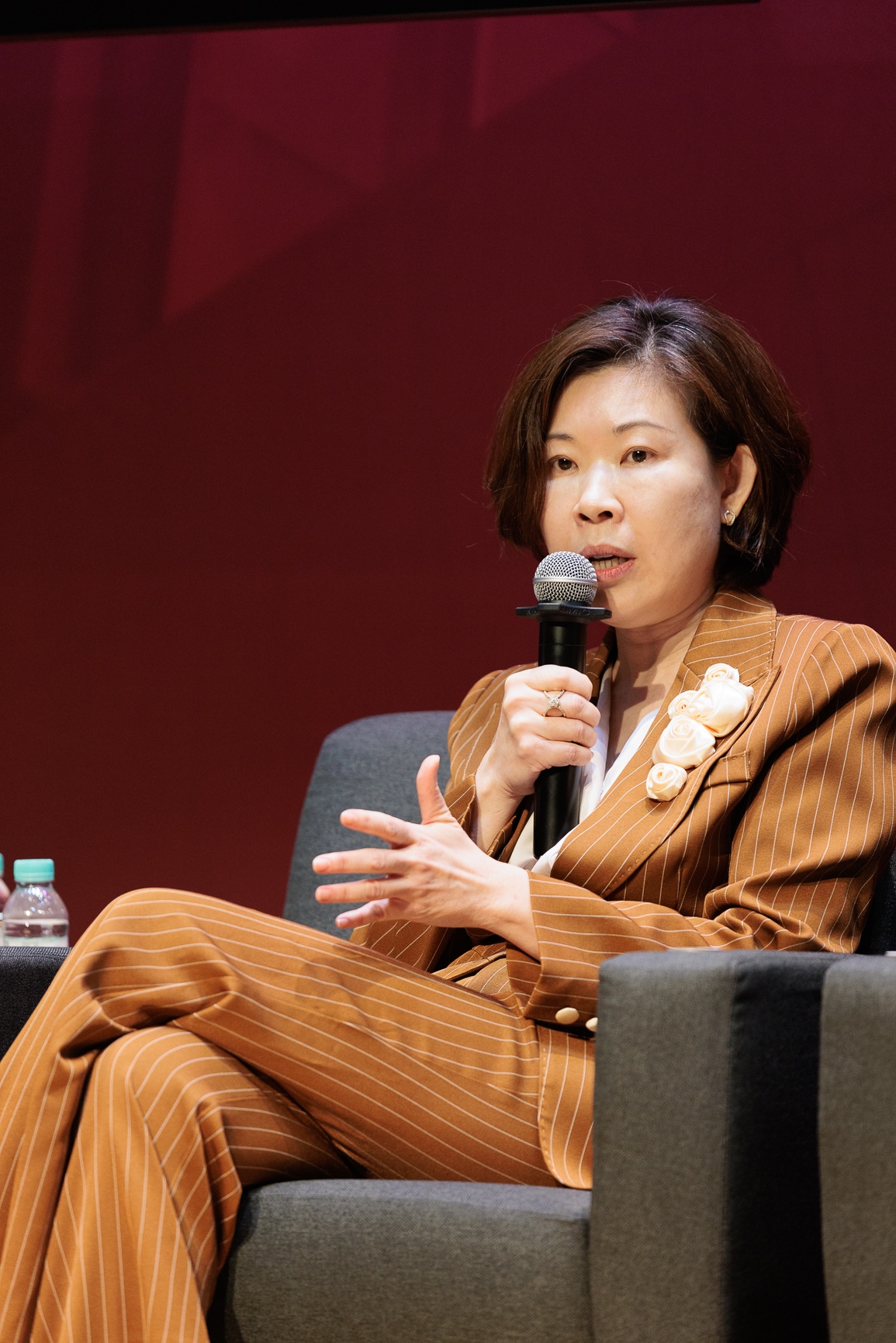
(Pei-Si highlighting the importance of having a diverse team)
Download the full report
Leading the leap: Trust-driven strategies to shape reinvention










